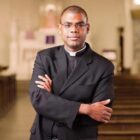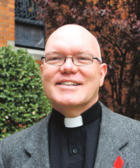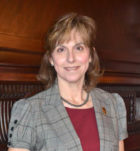Over the course of my almost 11 years of priesthood, I can honestly say that Easter Sunday has to be one of my favorite liturgies. There’s something about Easter Sunday that brings about a spirit of welcome and community.


Over the course of my almost 11 years of priesthood, I can honestly say that Easter Sunday has to be one of my favorite liturgies. There’s something about Easter Sunday that brings about a spirit of welcome and community.

These three gentle men — a doctor, a man with special needs, and a parish priest — reflect the nobility of soul so needed in our world. I say thank you, thank you, thank you. Your lights will shine forever.

It was a year ago on March 14 when the first death from COVID-19 was confirmed in New York City. It was that same date that the Diocese of Brooklyn suspended public Masses and our parishes ceased public worship in order to help mitigate the spread of the virus, deadly to so many.

If there is one thing that humanity has learned to do over the last year, it is to wait. Wait while in quarantine. Wait until we “flatten the curve.” Wait for a vaccine. Wait for an appointment to get vaccinated. Wait to see your loved ones again. Wait for the economy to open again.

Here in the Diocese of Brooklyn, there is a deeply respected and highly regarded Roman Catholic-Jewish dialogue where leaders of both faith traditions come together as thought-partners to discuss critical theological and social histories and attitudes.

I know that many will say that slavery was in the past, and what’s done is done, and that’s all over now. I hear this often. And while yes, it’s true that black persons are no longer exploited to work as slaves, centuries of racism and its remnants have resulted in blacks being cataloged and labeled: they are “the other.” We’ve been conditioned to view hem differently, suspiciously.

When I was in eighth grade, I almost suffered a heat stroke in Death Valley during a family road trip through the Southwest. Conditions on that day were particularly brutal, and thankfully a nearby country store stocked dry ice.

The coronavirus pandemic has changed the way we do many things — from how we shop to how we work and go to school.

This coming year will undoubtedly be challenging on many fronts. In the model of St. Francis de Sales, and with the sanctity of journalism in mind, good journalism in 2021 can be a community builder that joins us in the common knowledge of what is happening, what to believe and how to move forward.

Much has been written in the secular media on President Joe Biden’s overt Catholicism and how that might challenge the already complex and daunting tightrope walked by Catholics in the public square.